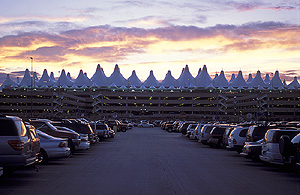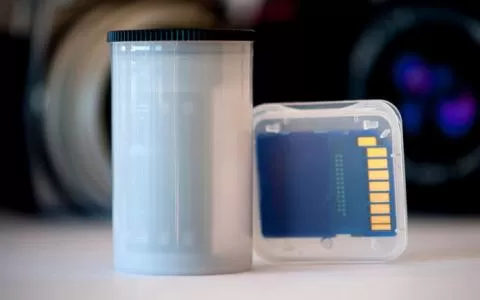I know that a lot of photographers are still shooting on film, and I respect that.
They have their reasons. I still have my Minolta Dynax 7 film camera and a bunch of Provia 100's lying around, but honestly: the last film that I put in it "to supplement my digital pictures" has never been developed!
The day I got my first digital SLR, a Minolta 7D, I stopped taking film. Simple as that.
I saw and still see no reason to shoot on film. I get technically better results from digital, and the photography side of it is the same: it's not the fly, it's the driver as has been wisely said, a fly being a horse carriage from the Victorian England.
Oftentimes I have to remind people about the film days. Look at this table, which tries to parallell the two processes:
| Step | Film | Digital |
| Get media | Buy film (expenses) | Erase cards |
| Load | Load film, fumble, fumble | Load card (maybe) |
| Assess capacity | 36 shots | Hundreds of shots |
| Shoot | The same | The same (but with optional chimping) |
| Reload | Rewind, remove film, fumble, fumble | Remove card (maybe, some people use a cable) |
| Develop | Deliver, wait, wait, wait, fetch (expenses) | N/A |
| Scan | Dust off, load, scan (or expenses) | N/A |
| Save | The same | The same |
| Dust off | A lot | A little - sometimes |
| Archive | Physical and digital | Digital |
| Decay | Likely | Unlikely |
And this whole process goes for slides, where you may just need to cut, maybe frame, and store the individual pictures. If we were talking B/W there was the whole printing part in the darkroom, which literally could take days for a day's worth of shooting.
People tend to forget all the handling and trouble connected with using film, and they tend to vastly overrate the technical quality of the average film picture. Try digging out an old slide and scan it as best as you can in as high a resolution as you can. Then go out and shoot the same subject with your DSLR. I'll bet you that a digital JPG right out of the can is better than the scan -- unless you take 6-by-6's, own a state-of-the-art scanner and know how to use it.
I don't think I have a single slide in my archives, which can compeat with my average digital images -- on the technical level that is. I have tonnes of slides as good as or better than my digitals when it comes to content. But that's another story.
I know film enthusiasts will hate me for saying this and holler "dynamic range", "soft shoulder", "more forgiving" and "when Ansel Adams could, so can you". And it may all be true for them. It's just not the case for me.
The 'Digital Effect'
I have seen this phenomenon discussed elsewhere, but don't remember the phrase or term used. It just said what many of us see: digital images just look nicer right out of the camera. It does not have anything to do with resolution or sharpness or any other technical aspect (although it might have), but it's rather like a subjective niceness that digital images have.
OK, some digital pictures stink, I know. Hard compression, burnt out highlights, chromatic noise and a blurry appearance can mar any picture. But I mean well shot and well treated digital images. Taken in a high resolution, with gentle JPG-compression or converted from RAW. Again and again I get surprised how lovely these pictures can look with little work, and how far from the randomly grained, dusty scratched slide of the heydays they can be.
I for one don't miss film, that's for sure.
The old masters
I'm not saying that digital can produce better pictures than film. That would be downright stupid. Some of the world's best photos have been taken and are still taken on film, and I'm not arguing that you get better images by switching to digital.
The Irving Penn's, James Nachtwey's and the Ansel Adams's have proved that beyond any doubt. Film has been the carrier of so many masterpieces that there is no reason to doubt its merits.
I personally have just increased my productivity manyfold by changing to digital. When it comes to producing good images, I find the technical quality better and more homogenous, and I find the lack of handling in the development/scanning process to be a blessing, which frees me to spend more time doing what I like: taking pictures.




